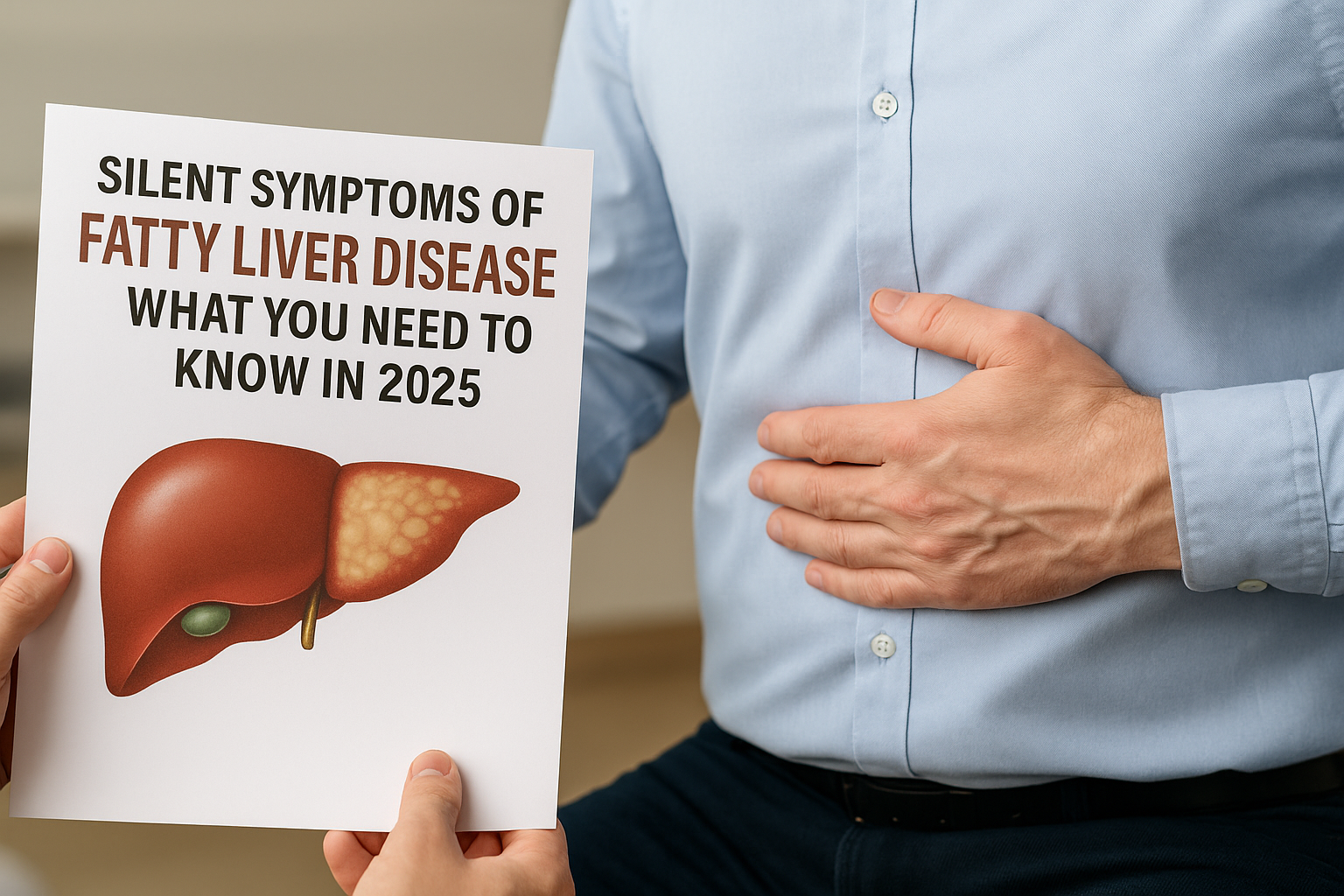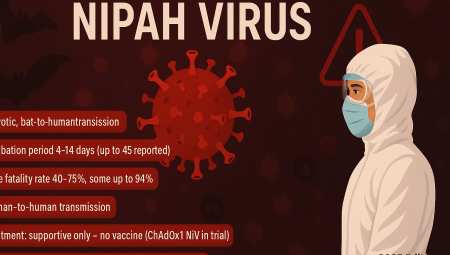The Hidden Threat Inside Your Liver
Fatty Liver Disease—particularly Non-Alcoholic Fatty Liver Disease (NAFLD)—has silently become one of the most common chronic health conditions globally. In 2025, as unhealthy diets, sedentary lifestyles, and metabolic disorders surge, millions are living with this condition without knowing it. That’s because fatty liver often shows no symptoms until the damage is significant.
This article offers a deep, expert-backed look at the silent symptoms of fatty liver, why early detection is crucial, and how to protect yourself in the modern age.
What Is Fatty Liver Disease?
Understanding NAFLD and Its Growing Prevalence
Fatty Liver Disease is the accumulation of excess fat in the liver cells, often unrelated to alcohol use. The most common form is NAFLD, which can progress to more severe liver damage including non-alcoholic steatohepatitis (NASH), fibrosis, cirrhosis, or even liver cancer.
Shocking Statistics in 2025
- Estimated to affect 1 in 3 adults worldwide
- Leading cause of chronic liver disease in many developed countries
- Closely linked to obesity, type 2 diabetes, and insulin resistance
What Are the Silent Symptoms of Fatty Liver?
Fatty Liver Disease often develops silently, but early warning signs may include fatigue, mild abdominal discomfort, unexplained weight gain, or elevated liver enzymes found during routine blood tests. Many people remain asymptomatic until advanced stages.
Silent Symptoms You Shouldn’t Ignore
1. Persistent Fatigue
Feeling chronically tired even after restful sleep may indicate your liver is under stress.
2. Mild Abdominal Discomfort or Fullness
A sensation of bloating or pressure in the upper right abdomen is a subtle red flag.
3. Slight Weight Gain or Difficulty Losing Weight
Even with a good diet, NAFLD can disrupt metabolic function, making weight loss harder.
4. Mild Jaundice (in advanced cases)
Yellowing of the eyes or skin can appear when liver function declines.
5. Elevated Liver Enzymes (AST, ALT)
Often the only clue, discovered through routine blood work.
Why Fatty Liver Is Hard to Detect Early
- No pain nerves in the liver to signal damage early
- Symptoms mimic common issues like stress or poor sleep
- Often discovered incidentally during unrelated checkups
- Many assume it’s only an issue for alcohol drinkers (which is false)
Who Is Most at Risk in 2025?
At-Risk Populations
- People with high BMI or central obesity
- Those with pre-diabetes or type 2 diabetes
- Individuals with high cholesterol or triglycerides
- People consuming processed or high-sugar diets
- Sedentary lifestyles or chronic stress
How Fatty Liver Progresses If Left Untreated
Stages of Progression
- Simple Steatosis – Fat accumulation with minimal inflammation
- NASH – Inflammation and damage to liver cells
- Fibrosis – Scar tissue begins to replace healthy liver cells
- Cirrhosis – Extensive scarring and loss of liver function
- Liver Failure or Cancer – In advanced untreated cases
Diagnosis and Testing in 2025
Non-Invasive Methods
- Blood tests for ALT, AST, GGT, and lipid profile
- FibroScan and elastography for liver stiffness
- MRI-PDFF for quantifying liver fat
When to See a Doctor
- If you have metabolic risk factors
- If you feel persistent fatigue or mild right upper pain
- If annual checkups reveal elevated liver enzymes
Preventing and Reversing Fatty Liver
Proven Lifestyle Interventions
- Low-sugar, low-carb diet (e.g., Mediterranean or DASH)
- 30–45 minutes of moderate exercise daily
- Weight loss of 7–10% shown to reverse early-stage NAFLD
- Avoiding alcohol even in non-alcoholic cases
Supplement and Medication Trends (2025)
- Vitamin E for non-diabetic NAFLD
- GLP-1 receptor agonists for obese individuals
- Berberine, curcumin, and omega-3 fatty acids gaining popularity
Pro Tips: Expert Advice for Managing Fatty Liver
- Track liver markers annually if you’re at risk.
- Swap soda and fruit juice for water and herbal teas.
- Add strength training to improve insulin sensitivity.
- Cook at home more often to control added sugars and fats.
- Avoid long-term use of unnecessary medications that stress the liver.
- Don’t wait for symptoms—screen proactively.
FAQs: Frequently Asked Questions
Can fatty liver disease be reversed?
Yes—especially in early stages. Weight loss, exercise, and dietary changes can significantly reduce liver fat and inflammation.
Is NAFLD dangerous?
If left untreated, it can progress to cirrhosis, liver cancer, or even failure. Early detection is key.
Can skinny people get fatty liver?
Yes. It’s called “lean NAFLD,” and it’s linked to poor metabolic health rather than body weight.
What is the best diet for fatty liver?
Mediterranean diets rich in vegetables, lean protein, and healthy fats are considered ideal.
Are liver detoxes effective?
Most commercial liver detox products have little scientific backing. Natural lifestyle changes are more effective.
Have You Checked Your Liver Health Lately?
Do you or someone you know live with silent symptoms of liver issues? Have you had your liver enzymes checked recently? Share your experience, thoughts, or questions in the comments below. Let’s raise awareness together.
Coming Soon: “10 Best Foods to Heal Fatty Liver Naturally in 2025”



